The era of being good online is ending. As politics, power and ideology merge with communication infrastructure, a new world order emerges.
Masks are off in 2025. After years of virtue signalling, hopes for progressive politics, waves of inclusivity programs, and community-oriented messaging, the do-good era of being online is now over.
It all started with the advent of social media in 2004: once audiences had the ability to comment, post their own content, and form their own communities online, the pressure on both brands and governments to be more inclusive rose. In this era, we believed that to uphold codes of ethics, to be “fair” would inevitably lead to progress. A better world for the many, inclusive and egalitarian. Being good was make or break when you were fully exposed online.
But as the dream of inevitable progress by doing good failed to materialize in most of the world, the political tenor has decidedly shifted away from the 20th century heydays of liberalism, inclusive globalism, and cosmopolitan network culture toward a balkanization of the political and cultural map. And this new map is not just fragmented, but twisted. Traits traditionally coded as “right” or “left” or “good” or “progress” are now being thrown together in strange mixtures based on subcultural affiliations often gestated online.
At the same time the mechanisms, media, and institutions that previously were charged with creating some kind of consensus amongst society began dissolving. Ideologies exploded into a million niche subcultures, and new populist monsters emerged that managed to instrumentalize them.
The center could no longer hold, culturally or geopolitically. And so the question of what’s good and evil isn’t a moral one anymore, nor a public discourse. It’s a question of power and what team you're on.
Populism won, but so far only the anti-do-gooders have figured it out.
Unabashed tech oligarchs and trads / edgelords are taking vanguard positions on the world stage and in the culture. X has turned into a bullhorn for “anti-woke” sentiments used to boost Musk’s political messaging, Meta has abandoned its fact checking in deference to possible Trump retribution against the Zuckerberg empire; Starlink, TikTok, and Nvidia/TSMC are becoming geopolitical bargaining chips in nativist industrial trade wars; Network States are gaining popularity as new ways to abandon the poors on fantasy islands, and ever more of the cultural world’s clout is coming from either Right-curious edgelords toying with a revival of “sleaze” or body optimization grindset gurus like Bryan Johnson.
The counter reformation of the progressive era is in full effect.
It’s not just a vibe shift. Being “good” simply doesn't cut through the noise as once it did in today’s media. This is as much a problem of platform logic as it is of political economy: Reactionary outrage begets clickrates, which begets attention and reach especially when the people running these media platforms are themselves largely sympathetic to reactionary beliefs. The politics of the counter reformation are made to travel well on our media architecture at the same time as those in power continue to prime the media architecture so that these signals are boosted.
After 20 years of living with and within the attention economy, its next evolution is that being evil becomes a USP.
The famous “end of history” idea articulated by political scientist Francis Fukuyama described how the end of the Soviet Union brought an end to the struggle for political ideas. The west had “won” the Cold War and now a global consensus had halted the march of historical change as everyone settled into a unified global liberal economic, political, and social order. History being “over” meant that everything stays the same.
The past 20 years of media infrastructure followed that principle until it didn’t. Social media incentivized more extreme views at the same time that China began to develop an entirely different internet that, unlike the Western internet, was built on the values expressed by the state. Similar projects online and off followed suit as countries like India, Singapore, and EU began to make rules concerning how data was shared, what apps were allowed in their territory, and demanding that online infrastructure at least partially reflected the value of the state.
What is happening now in the US (the soft power of Silicon Valley teaming up with the hard power of President Trump) does not herald a new world order on its own. It’s the West following suit into a new fragmented world order that the rest of the world has already been moving towards years before by architecting its infrastructure around cultural and political values.
Meanwhile, clearnet internet is no longer fun cyberspace anymore, but a hyper controlled environment full of surveillance and manipulation. The censorship and state control of media the West once alarmingly criticized China and other countries for, is now strikingly similar to their own strategy but with different values - China’s internet being more Orwellian and the West’s being more Huxleyian.
Going dark is one strategy of the savvy and privileged. VPN hopping cosmopolitans with the increased risk of exposure online from both the state and their peers began fleeing to the Dark Forest of the internet; off mainline socials where their speech and behavior was broadcast to anyone and into small niche communities on invite-only forums, p2p networks, and group chats.
That, or jumping to another internet entirely as showcased by AmericanTikTok refugees flirting with (and even coming to love) Xiaohongshu (RedNote, aka the other popular video app from China) after the recent (gasp) 14hr “ban” of the world’s most popular social media.
What’s clear is that people are fed up with the infrastructure we have and will do anything to break free from it.
This means people are increasingly not interested in speaking to one another unless they already know they have a strong sense of commonality or they can access something totally new. The risk (or mundanity) is not worth it otherwise. So the mainnet turns into a slop of “for anyone” consumer trends and long Twitter battles with bots, but the place where culture actually happens is hidden and so fragmented that it can’t help but create strong divergences between people.
As these online spaces become the predominant place where younger generations get their media, the big tent information of the clearnet, of mass media, of consensus middle gets hollowed out.
The only way to be good today is to operate under the surface of the current media, on your own infrastructure, articulating what “good” is for your community. The doom of pervasive evil is not outdone by hope, but by the curiosity and boldness to do something on your own terms.
Some of the consequences:
Brands and platforms emerge that propose a new economic model for creatives, a clear codex of what is good and bad within their system, a moral compass, such as Metalabel or Subvert.
Crypto goes deeper into the Right-coded direction of Bitcoinmaxxies, memecoin grifters and anti-government types. While Ethereum, the more pro-social / governance experimenter of the big public blockchains, doesn’t boom like Bitcoin and others due to the new regulatory environment in the Trump era.
Europe will be launched into an identity crisis as its tech stack decouples with that of the US. Data regulation, AI regulation, anti-trust litigation, and political infighting will drive a wedge between what services are available where, creating a mess for brands and institutions trying to work in both jurisdictions.
Governance and purpose are retooled to reflect values in a hard coded way. Like how Patagonia became community governed and explicitly focused on their ecological commitments even if this leads to layoffs or uncertain business forecasts.
The most significant worldbuilding will take place on an infrastructural level. What content was for the past 10 years (e.g. Balenciaga becoming a media house) will be infrastructure for the next decade: brands and new projects systematically building out their own worlds / stacks / fiefdoms online and offline in which communities find meaning, belonging and safety.
There’s no more need to play nice anymore, unless you really want to. The choice is yours. But with that there is an imperative today to understand where you stand amidst the major tectonic shifts happening all around us and figure out, anew, what it is you want and what drives you.
Be part of history or become history.
co—matter is a research & strategy studio based in Berlin. We equip global brands, startups and institutions with ideas, intelligence and agency to navigate a rapidly changing world.
This is the start of a newsletter mini series of 6 where we explore how this new era is changing our assumptions about culture, technology, and politics such that brands and institutions will need to decidedly reorient how they have been operating.


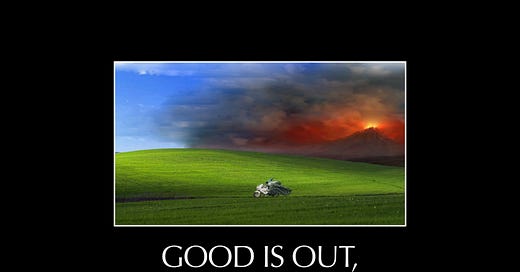




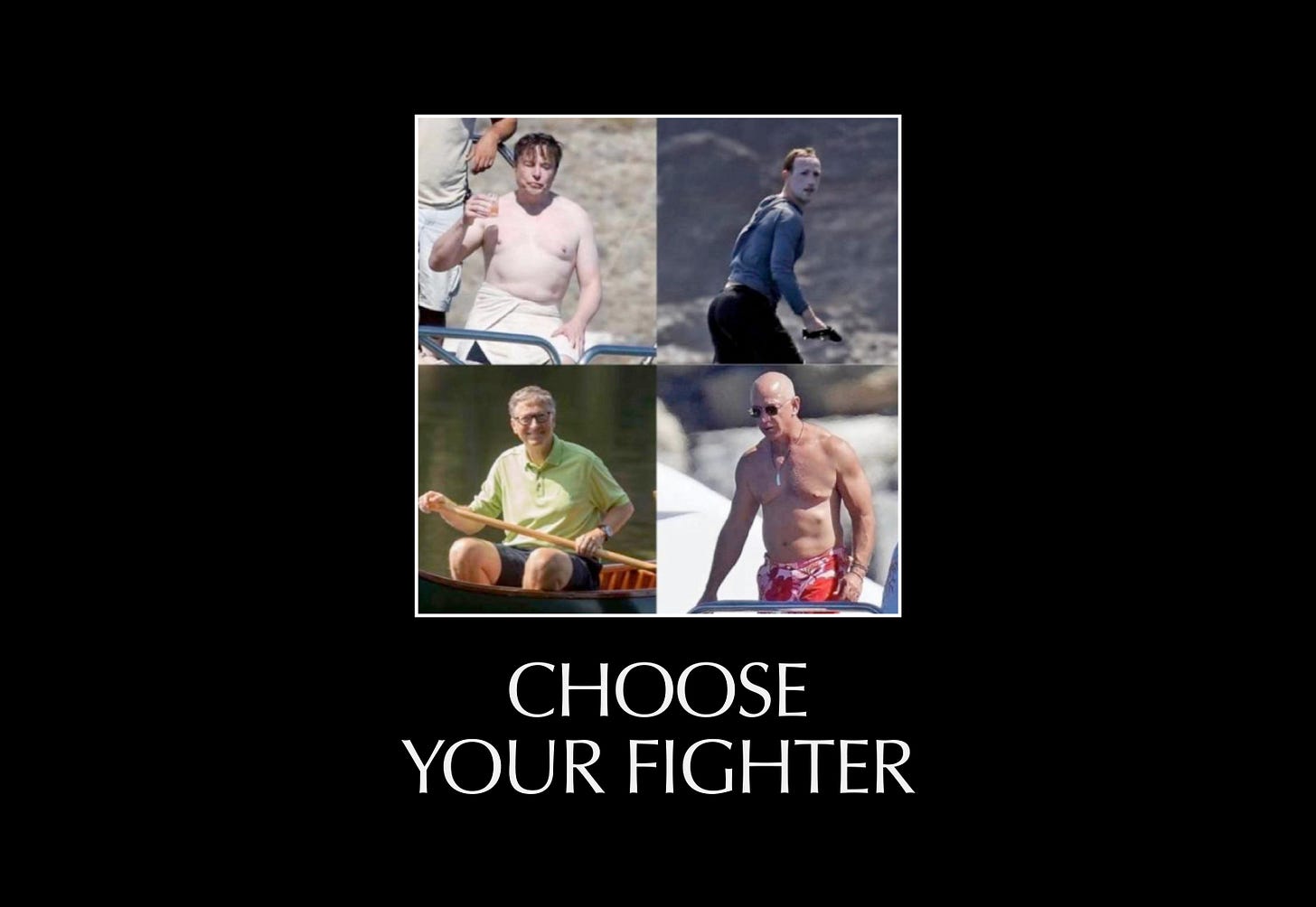
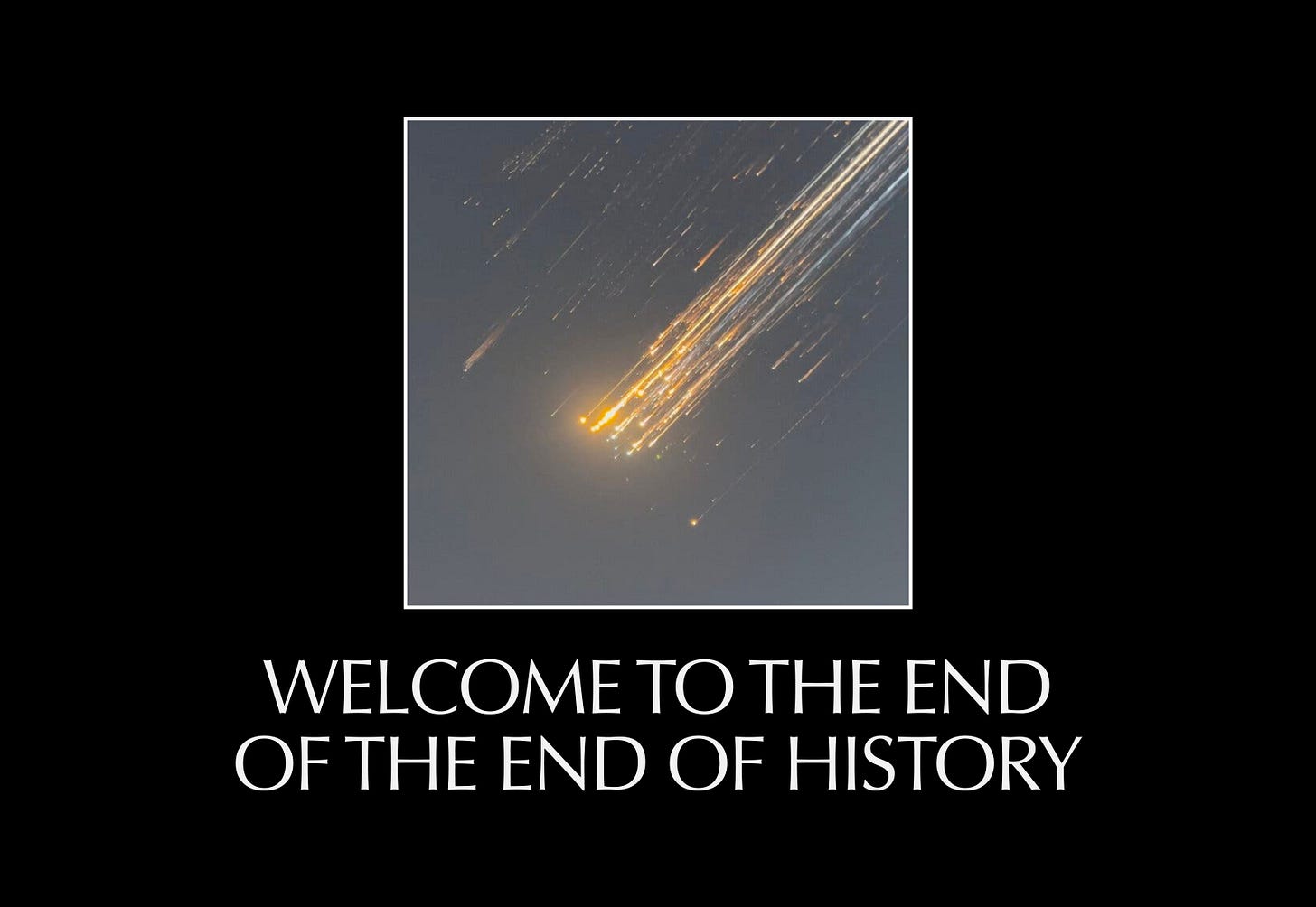
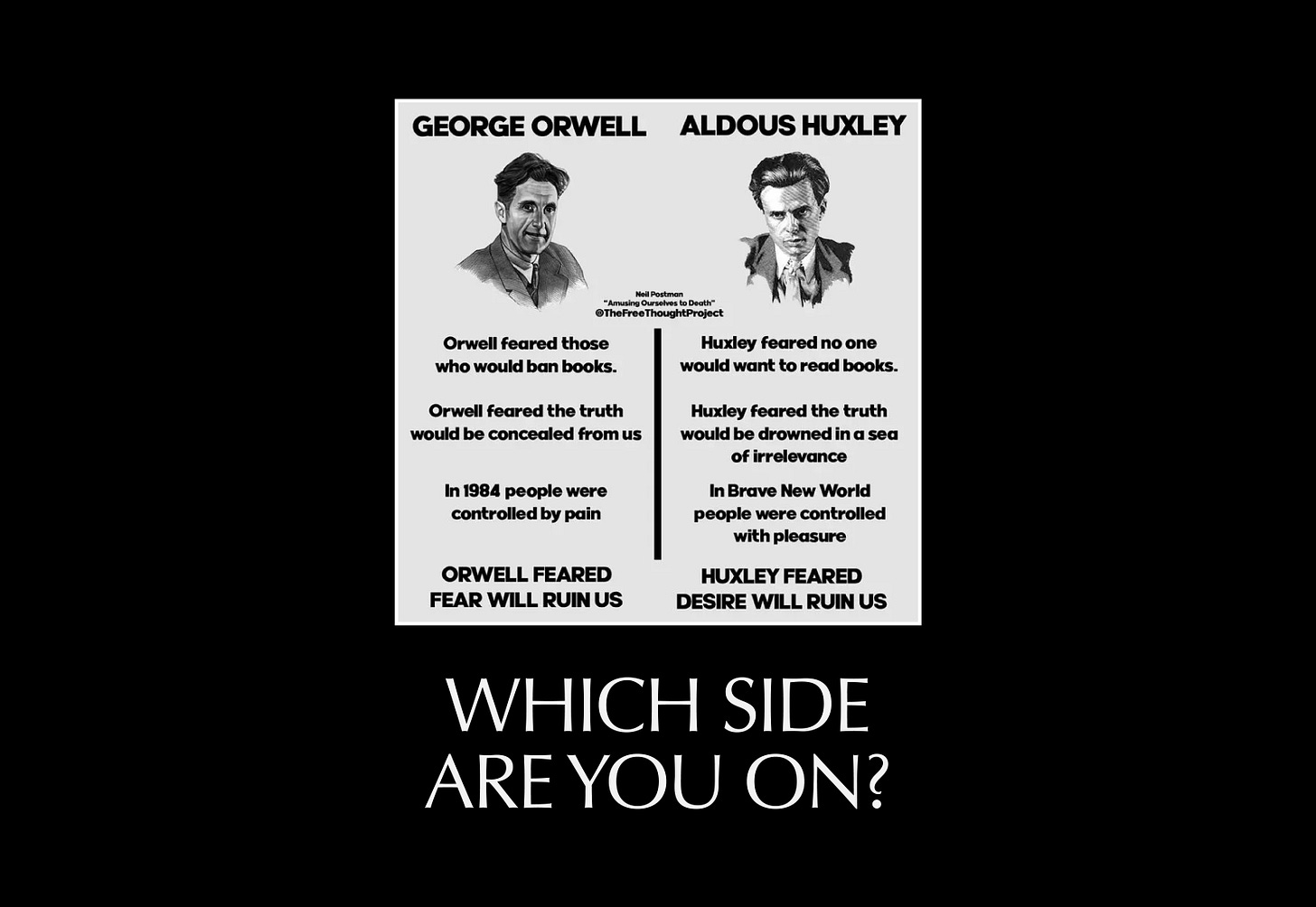
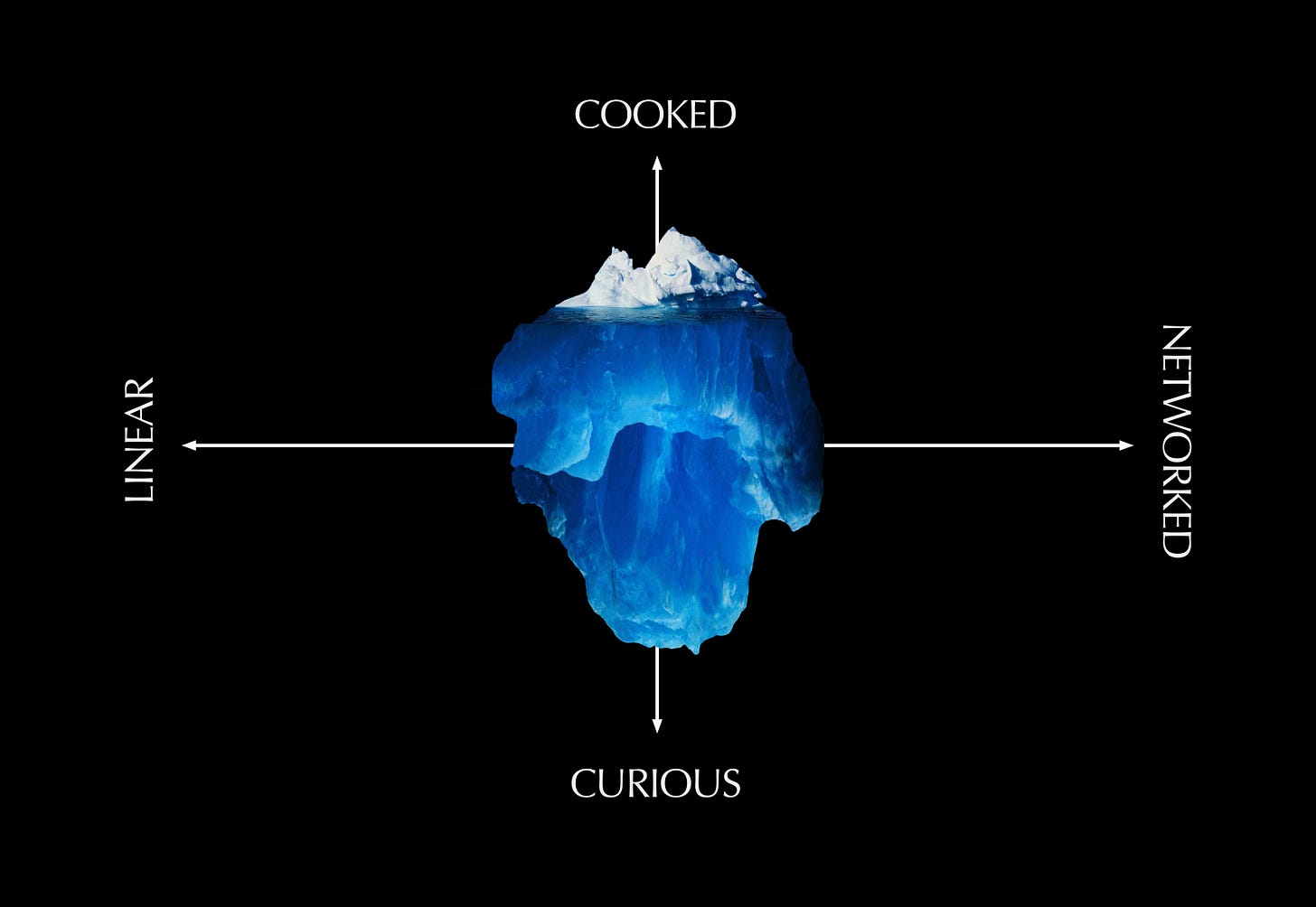
Very good and important read, thank you!
"There's no need to play nice anymore, unless you really want to."
I think it's a bit opportunistic to say there's no need online. There still is. And now is the time to start a real counter-attack of the good and develop strategies on how to be good and nice!